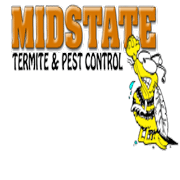What Is the Life Cycle of a Yellow Jacket?

Spring will be here before you know it, and it won’t be long until you see the first yellow jackets. The black and yellow sections help identify these wasps from other species. If you see the insects flying in or around the house, call an exterminator for help. Yellow jackets are more attracted to humans than most wasps and will act aggressively, possessing the ability to sting multiple times. And since they commonly nest in the ground or in walls, there’s a risk of disturbing a colony. The following points on what attracts the insects and their life cycle will leave you equipped to take precautions to stay out of harm’s way.
What You Should Know About Yellow Jackets
Why They’re Active in Summer
The queen of a yellow jacket colony can store sperm, which means they only have to mate once to produce fertile eggs multiple times. Eggs hatch into larvae and then transform into pupae before reaching adulthood. The adult females tend to the nest. In late summer, the wasps create larger cells for new queens to develop. The reproductive males also inhabit the cells and leave to mate during the season. Due to mild springs in the South, it’s common for exterminators to see yellow jackets active much earlier than in other parts of the country.
Why They’re Attracted to Human Spaces
Human behavior during summer is what attracts yellow jackets to homes and yards. Although they feed on flies and other insects, yellow jackets also seek out meat and sugar for sustenance. In fact, they’re a rare insect that ingests protein during the larval stage.
 Because people often dine outdoors in warm weather, the insects are often seen hovering around garbage cans at barbecues and public trash receptacles during summer. Once the insects get into your yard, they could build nests in the ground near your home’s exterior, inside walls, or the attic. Trying to remove nests on your own can be dangerous. Exterminators wear protective gear and know how to handle the structures to prevent injury.
Because people often dine outdoors in warm weather, the insects are often seen hovering around garbage cans at barbecues and public trash receptacles during summer. Once the insects get into your yard, they could build nests in the ground near your home’s exterior, inside walls, or the attic. Trying to remove nests on your own can be dangerous. Exterminators wear protective gear and know how to handle the structures to prevent injury.
Why Their Activity Subsides Later in the Year
Male yellow jackets die right after mating and colonies start to decline in late summer. As food starts to become scarce in fall, yellow jackets begin to act more aggressively when disturbed. Again, mild weather in the South means these insects hang around longer than they do elsewhere. New queens hibernate throughout winter in preparation to start new colonies in the spring. The queens lay eggs during the summer to repeat the process again.
If yellow jackets or other pests have invaded your space, the exterminators at Midstate Termite & Pest Control will restore property comfort and safety. Since 1953, residents throughout Putnam and Cumberland counties and the surrounding areas have turned to the team for reliable, effective pest control services to eliminate their bug and rodent problems. They will also share cleaning advice to keep unwanted guests out of your property. To schedule a residential or commercial pest control appointment with the Cookeville, TN, exterminators, call (877) 526-4222. Connect with the company online to learn about their satisfaction guarantee and check out their Facebook page to read customer reviews.
About the Business
Have a question? Ask the experts!
Send your question

